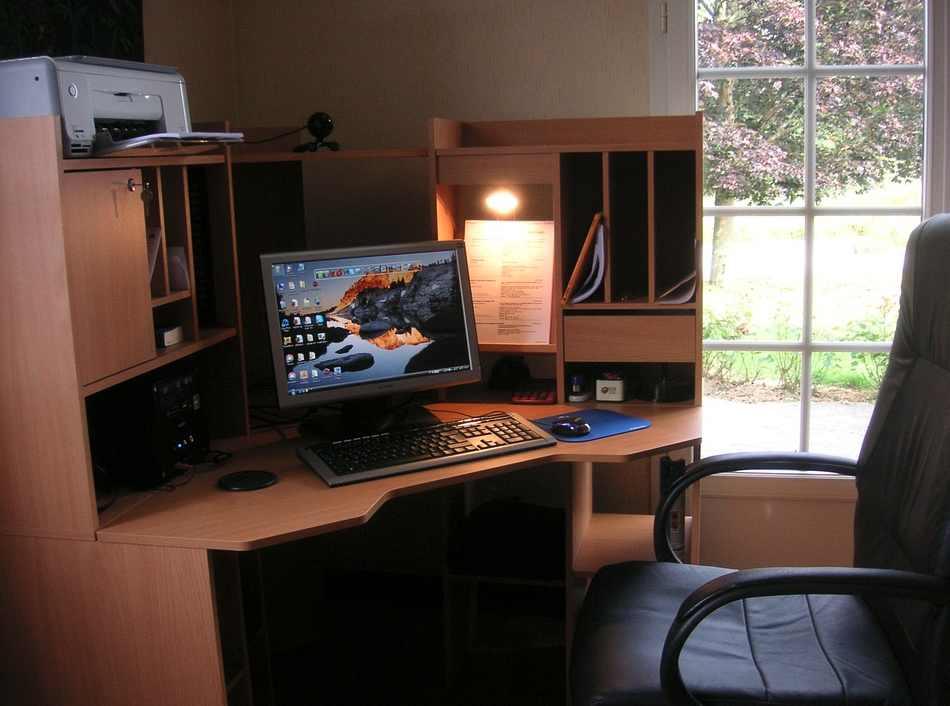Working from Home: Setting Boundaries - Physical and Psychological

On the surface, working from home sounds like a walk in the park. But, in reality, more than two-thirds of employees are experiencing burnout, according to a survey from Monster. This is likely due to a lack of time off, feelings of job insecurity and financial anxiety, childcare issues, and blurred lines between personal and professional time.
If you’re working from home and feel like your professional life is invading your personal life, and you lack a work-life balance, it’s time to set both physical and psychological boundaries.
The following tips will help you set physical and psychological boundaries between your personal and professional life while you are working remotely.
Create a dedicated office space.
This is such an important first step to working from home successfully because if you don’t create a dedicated office space, work will seep into every part of your life. Notice how we said “office space” and not just office. Depending on the layout and size of your home, and how many other people are living there, you may not be able to dedicate an entire room to work. That’s okay. But it is still important to set up a corner of a room, at a minimum, to use ONLY for work.
Set your hours.
Even if you aren’t working a traditional 9-5 like you might’ve done in an office, it’s still essential to set consistent hours so that everyone on your team knows when you are available and can plan accordingly.
Get dressed.
It’s easy to roll out of bed, log in, and start working. But pajamas aren’t exactly conducive to productivity. Separate your home and work life, and signal to yourself that it’s time to work, by getting dressed every morning. Now, this doesn’t mean you need to put on a suit, dress, or makeup. But it should be something presentable and it would be a good idea to brush your hair. Just remember to keep a nice shirt on hand to throw on if a video call comes up.
Commute.
While we don’t know anyone who misses commuting, we do know that the ability to prepare for and then unwind from work is very important. Instead of getting into your car and driving to the office, go for a walk, work out, read, listen to music or a podcast, watch TV, or just let yourself zone out with a cup of coffee before and after work. The activity is up to you, but the idea is to create a transition to and from work, which is very important for your mental health.
Say no.
Saying no is important in your personal and professional life. Working from home doesn’t mean you can suddenly go golfing or run errands during work hours. On the other hand, it also doesn’t mean that you need to work outside of your normal hours, which brings us to our next two points…
Log out of your work email on your phone.
When you are not working, log out of your work email on your phone. Or, better yet, don’t keep your work email on your phone at all (unless that is part of your employment agreement). If you are constantly notified about work emails during your time off, you may find yourself thinking about and/or working outside of your work hours, or when you are supposed to be taking time for yourself. This will likely cause unnecessary stress.
Take days off and stick to them.
On your days off, avoid your workspace like the plague—or maybe like COVID-19. We get that working on the weekends is sometimes a necessary evil, but taking the weekends and vacation days off is extremely important for your mental health. So, if you’re taking a Monday off, take it off.
Find a WFH community.
Working from home can easily become isolating, so it’s important to find “your people.” Set up Zoom or even in-person lunches with co-workers or other friends who work from home. You can also arrange “coworking” days with coworkers and/or friends who also work from home.
How are you coping with working from home for the last year? Do you love it? Hate it? Drop a comment below and let us know.